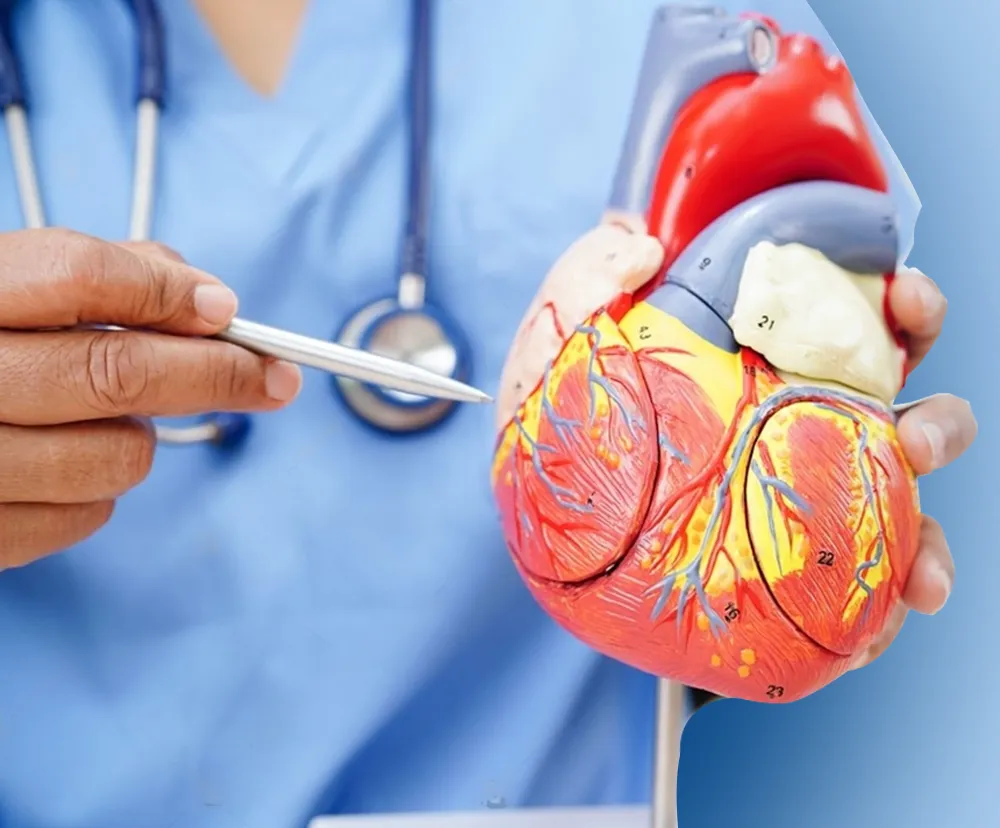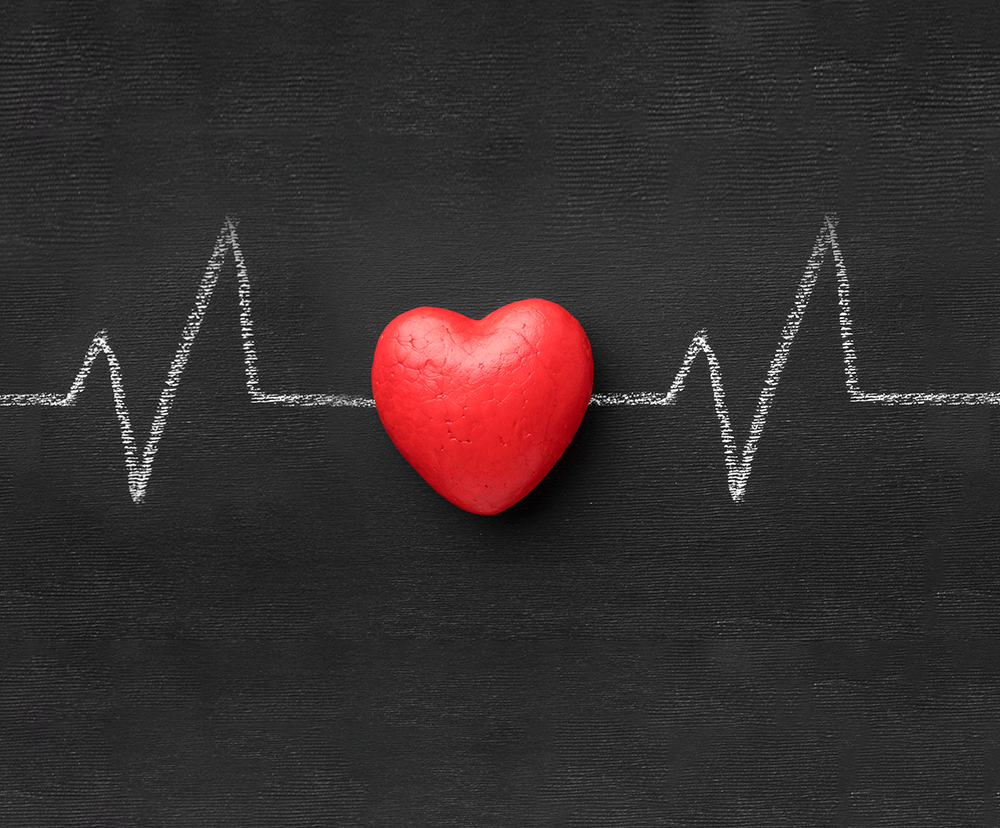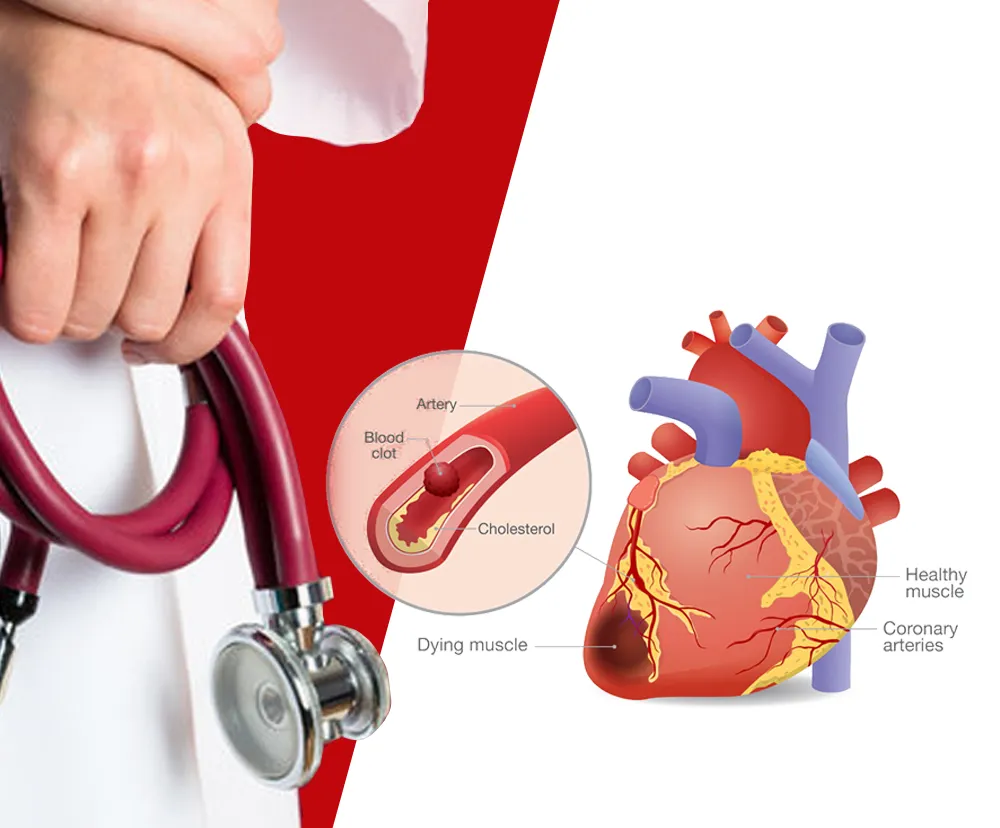How to Predict Heart Attack Reason and take Suitable Treatment?
How to Predict Heart Attack Reason and take Suitable Treatment?
- Is there a single reason behind heart attack?
- What is the reason of heart attack and how does it cause an attack?
- How to understand the symptoms of each heart attack reason?
- Symptoms of high blood pressure?
- Symptoms of high cholesterol levels
- Symptoms of high blood sugar levels
- Indications of family history of heart disease
Introduction
Elizabeth Banks, the famous actress in “The Hunger Games” discovered she was at high risk of heart attack because of a family history of heart disease. She quickly took preventive actions, including making desired the lifestyle changes and periodic check-ups. Another example is that of Rita Wilson, who discovered through genetic testing that was predisposed to health issues, including cardiovascular health. Elizabeth and Rita are not alone – there are countless people who have benefitted from testing to detect heart attack reason. This has saved lives, and could also help you or a near and dear one. Read on for simple tips on how you can detect or predict future or lifetime risk of heart attack.
Is there a single reason behind heart attack?
No, in most cases, heart attack is often due to multiple reasons that work together to trigger one. However, in some rare instances, there could be a single reason for heart attack. Every heart attack reason has possible tell-tale symptoms, and this can help you to detect the risk in a timely manner. Here are some of the reasons that could directly or indirectly cause a heart attack. Some of the conditions actually develop over time and this gives you enough time to detect and take suitable remedial action.
- High blood pressure.
- High cholesterol.
- Heart valve disease.
- Congenital heart disease.
- Family history of heart disease.
- Anomalous coronary arteries.
- Diabetes.
- Smoking.
- Alcohol use.
- Obesity, sedentary lifestyle.
- Stress.
- Sleep apnea.
What is the reason of heart attack and how does it cause an attack?
Each heart attack reason either directly or indirectly triggers an attack. Read short descriptions of how each reason causes an attack.
- Coronary artery disease – Known as CAD, this is regarded as one of the most common causes of heart attacks. This is due to narrowing or blockage of the arteries that deliver blood to the heart. This occurs as a result of plaque buildup, medically known as atherosclerosis.
- High blood pressure – Medically labelled as hypertension, this refers to high blood pressure levels that cause undue strain on the heart. This develops over a period of time, and results in increased risk of heart attack, either from atherosclerosis or from a thickening of the heart muscle.
- Smoking – When you smoke or when you are exposed to secondhand smoke, you will experience multiple effects. This includes damage to the lining of the arteries, blood clotting, and also reduces HDL levels. HDL is the term for good cholesterol which helps heart health.
- High cholesterol levels – When you have high levels of LDL, known as bad cholesterol, you are at risk of atherosclerosis. This increases the risk of heart attack.
- Diabetes – When this not controlled, it increases your risk of heart attack. When you have high blood sugar levels, this damages blood vessels and nerves related to the functioning of the heart.
- Obesity – Excessive weight, increases your risk of heart attack. One of the problems of obesity is its link to other risk factors, including high blood pressure and diabetes.
- Family history of heart disease – If there is a history of heart ailments in the family, then you are also at risk. However, it is important to note that this could be a risk mostly in conditions when someone in the family has had a heart attack at a young age.
How to understand the symptoms of each heart attack reason?
There are clear symptoms of each heart attack reason that you can use to detect or predict possible risk of heart disease. Let’s look at four reasons for heart attack and some of the symptoms for easy understanding, that you can use to follow up with a proper screening or laboratory tests.
Symptoms of high blood pressure?
During the early stage of hypertension, you will most likely not come across noticeable symptoms. High blood pressure is known as a “silent killer” because of this. However, when your blood pressure levels increase, you are likely to experience some of the following symptoms:
Headaches – You may experience frequent headaches, in the back of your head.
Dizzy feelings – You may feel faint when you try to stand up quickly from a resting position.
Impact on vision – You may experience vision problems like blurred vision or double images.
Pain in the chest pain – This may be experienced when there is high blood pressure or when there is a serious heart issue.
Difficulty breathing – You may experience difficulty breathing when high blood pressure causes heart failure.
Changes in heartbeat – If you experience change sin heart beat like a pounding sensation in the chest, it is time to go in for a check-up.
Symptoms of high cholesterol levels
High cholesterol levels is a heart attack reason, but you may not easily experience symptoms. Only when the condition progresses to persistent high cholesterol levels symptoms will develop. Possible symptoms include the following:
- Angina – Pain in the chest, could be an indication of coronary artery disease due to atherosclerosis.
- Peripheral artery disease – Pain in the leg or cramping during physical activity, could be due to atherosclerosis in the arteries that move blood to the legs.
- Transient ischemic attack or stroke – Sudden weakness or numb feeling in the face, arm, or leg, on one side of the body is a symptom.
- Xanthomas – Visible deposits of cholesterol include yellowish patches or bumps on the skin. This is mostly seen around the eyelids, or joints.
- Corneal arcus – If you observe a whitish or gray ring around the cornea of the eye, it could be an indication of high cholesterol levels.
- Gallstones – The formation of gallstones can cause pain and is a symptom of high cholesterol levels.
- Erectile dysfunction – Men with high cholesterol may experience changes to the blood flow to the genitals, causing erectile dysfunction.
- Pancreatitis – When you have very high triglyceride levels this causes inflammation of the pancreas. This may trigger pain in the abdomen, or nausea.
Symptoms of high blood sugar levels
Diabetes will trigger multiple symptoms, that may vary depending on the blood sugar levels, and the period since the levels were high. Common symptoms of diabetes that will slowly develop to a heart attack reason include the following:
- Thirst – You will experience more thirst, because the body attempts to push out excess sugar through urine.
- Increased urge to urinate – You may have the urge to urinate frequently, especially at night. This is because the kidneys will start working to flush out excess sugar.
- Tiredness – You will feel extremely and abnormally tired as the cells in your body may not be receiving enough glucose.
- Impact on vision – You may experience blurred vision because high blood sugar removes fluid from the eyes, affecting focus.
- Hunger – You will feel hungry as the cells in your body will not get sufficient glucose.
- Dryness in the mouth – Increased urination can cause dry mouth.
- Headaches – You may experience frequent headaches.
- Healing from wounds – High blood sugar levels can affect the body’s ability to heal wounds.
Indications of family history of heart disease
Another heart attack reason is family history of heart disease. This can put you at increased risk of developing heart ailments, and common symptoms or indications include:
- Premature ailment – When a close relative such as a parent or a brother/sister have heart ailment at an early age, it could indicate a family history. For instance, if heart ailments affect males before attaining 55 years of age and women before 65 years.
- Ailments for many members in the family – If more members of your immediate family are diagnosed with heart disease, it could mean you are genetically predisposed. This is especially if the ailments are at a young age.
- Specific conditions – Certain types of heart disease like coronary artery disease, angina, heart failure, or arrhythmias may be an indication of the condition running in the family.
- Ethnicity – People of specific ethnic groups are known to have higher prevalence of heart disease.
With genetic testing you can identify specific gene mutations or variants that are linked with higher risk of heart diseases. Advanced facilities are now available in Tamilnadu, offering individuals the chance to carry out proper testing that can rule out the condition or confirm risk. Depending on the results, you can take suitable remedial measures, if required. Genetic testing involves simple sample collection and analysis that offers a clear and conclusive result.
Medically Reviewed by
Dr.Rajasekar Cardiologist
Dr. Rajasekar is a cardiologist in Chennai, with extensive experience in the field. He completed his MBBS from Madurai Kamaraj University, followed by an MD in General Medicine and a DM in Cardiology from The Tamil Nadu Dr. M.G.R. Medical University (TNMGRMU).
Related Blogs :

Why You Need To Start Understanding Cardiovascular Disease
Slide HeadingLorem ipsum dolor sit amet, consectetur adipiscing elit. Ut elit tellus, luctus nec ullamcorper mattis, pulvinar dapibus leo.Click Here Previous Next What is the main information...


Life Saving Tips on how to stop Heart Attack
Introduction How to stop a heart attack in 30 seconds? Why time is of utmost importance? How to stop heart attack if you see signs of it...

Doctor of Pharmacy (Pharm.D) from the University of Delhi Experience : Dr. Srinivasan is an experienced pharmacist with a Doctor of Pharmacy degree from the University of Delhi and over 12 years in the field. She has worked extensively in clinical and community pharmacy settings, focusing on patient care, medication management, and drug safety. Dr. Srinivasan also contributes to health and wellness publications and serves as a consultant for pharmaceutical companies and healthcare organizations. Her expertise spans clinical practice, pharmaceutical writing, and regulatory affairs.



